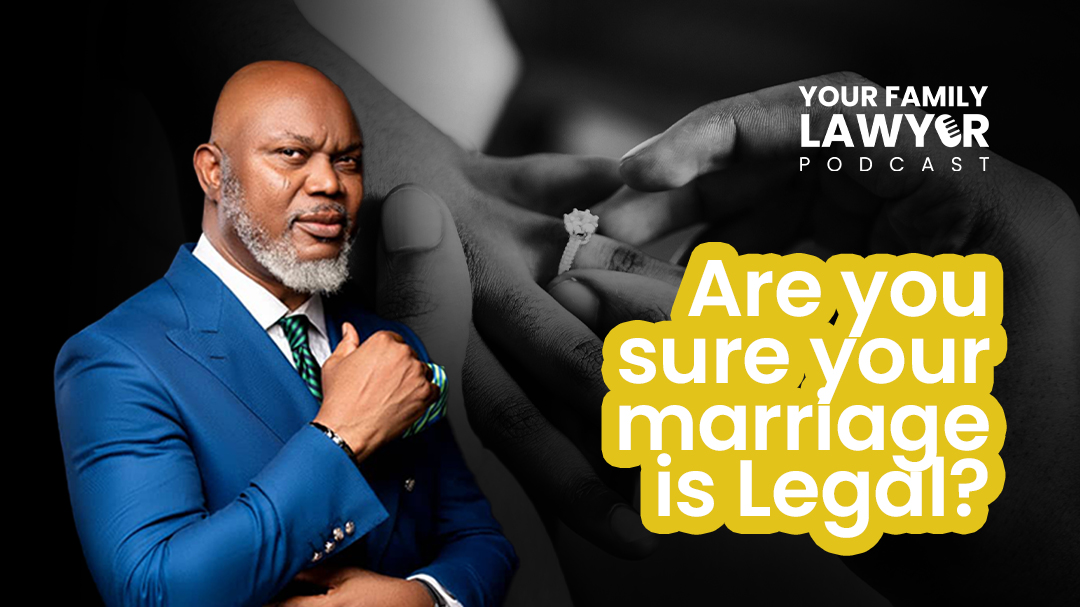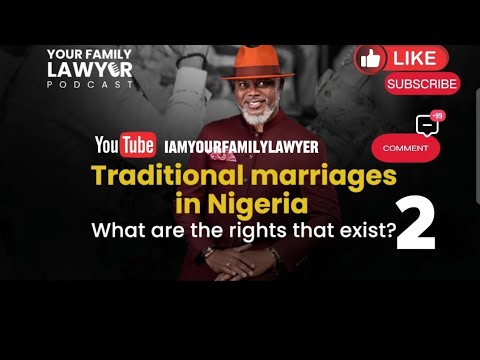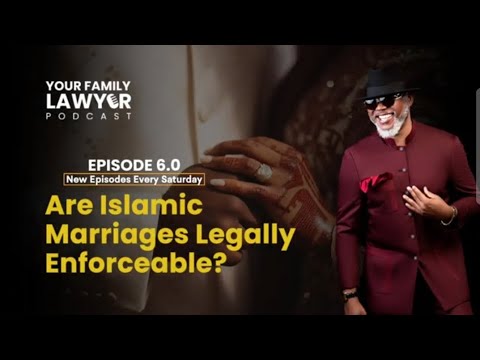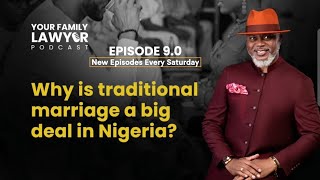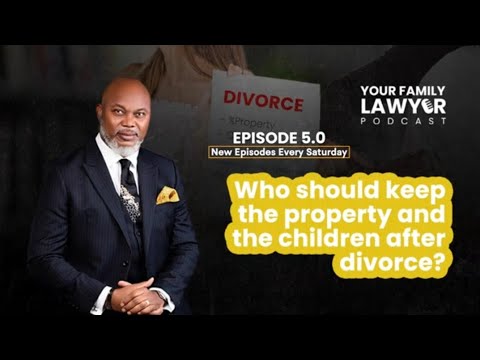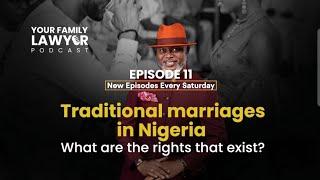What is a legally valid marriage under the Marriage Act (White Wedding)?
Welcome to Your Family Lawyer, the show that helps you navigate the legal side of life’s most important issues. Today, we’ve got a big question: What happens if you find yourself in a marriage that might not be legally valid? Buckle up, because we’re diving into the world of marriage under the Marriage Act what we commonly call the ‘white wedding.’ Many do not realise that behind the ceremonies and celebrations, there are legal requirements that determine whether your marriage is valid in the eyes of the law.
So let’s get into it what exactly it means to be married under the Marriage Act, and why is it so important to meet these legal requirements?”
Segment 1: Definition of Marriage Under the Marriage Act
Host:
“First things first, what does it mean to be married under the Marriage Act? Simply put, it’s a legal agreement between one man and one woman specifying that they’re married to each other only and to the exclusion of any other. This means that for as long as they are married neither party can marry another person and if anyone does, the new marriage is not valid.”
“The law, specifically Section 35 of the Marriage Act, makes this clear: a statutory marriage means you can only have one spouse at a time. If you try to marry more than one person, it’s a big no-no legally. This type of marriage is different from customary or Islamic marriages, which might allow multiple wives. A statutory marriage is strictly one man, one woman and breaking this rule has serious legal consequences.
In Nigeria, the following are pre-requisites to a valid marriage under the Marriage Act:
Meet the Eligibility Criteria
For there to be valid marriage under the Marriage Act, the couple must each fulfill the criteria set forth below:
- Both parties must be at least 18 years old.
- Both parties must provide their free consent to the marriage.
- Both parties must be single and free to marry.
- Both parties must be mentally capable of understanding the nature of marriage.
- Both parties must not be related by blood or adoption or affinity.
- There must be no impediment to the marriage, such as a pre-existing marriage or close blood relationship.
For there to be a valid marriage under the Marriage Act, the couple must take the following steps:
Step 1: Choose a Marriage Registry
Step 2: Obtain a Marriage License
Step 3: Conduct the Marriage Ceremony before a Marriage Registrar at the Marriage Registry during office hours or before a priest at a licenced place of worship before 6pm.
Step 5: Sign the Marriage Register
Step 6: Register the Marriage
Step 7: Obtain a Marriage Certificate
Mandatory Notice before Marriage under the Act in Nigeria:
21 Days’ Notice: The Marriage Act (1990) requires a 21-day notice period before the marriage can be solemnized.
Requirements for Mandatory Notice
The notice must be in writing and signed by both parties. The notice must be given to the Registrar of Marriages in the district where the marriage is to be solemnized. The notice must contain the names, ages, marital status, and addresses of the parties. The notice must specify the intended date of marriage. Non-compliance might be a ground to invalidate the marriage.
Segment 2: Case Illustration – Augustina Mbonu v. Paulinus Mbonu
Host:
“To bring this to life, let’s look into a real-life case. Imagine this: Augustina Mbonu finds herself in a whirlwind. She’s pregnant and her career is on the line. Her boyfriend, Paulinus suggests a quick fix marriage. But was it really a valid marriage or just a desperate act under duress? Let’s find out.”
Screenplay
INT. LIVING ROOM – DAY
AUGUSTINA sits on a couch, looking anxious. Her boyfriend, PAULINUS, paces around, equally distressed.
AUGUSTINA
Paul, what are we going to do? If her employer finds out I’m pregnant, I’ll be expelled from school.
PAULINUS
(Serious)
Augustina, there’s only one way to save the situation, we need to get married immediately.
CUT TO: INT. HOLY GHOST CATHEDRAL – DAY
A church wedding ceremony. AUGUSTINA looks nervous, glancing around. FATHER MCORMARK conducts the ceremony. PAULINUS stands beside her, holding her hand firmly.
INT. COURTROOM – DAY (FLASH FORWARD)
AUGUSTINA stands before the judge, looking determined.
AUGUSTINA
My Lord, I never consented to this marriage. Paulinus threatened to reveal my pregnancy to my employers. It was under duress. I was also underaged at the time, I was only 17 years old. I want this marriage to be nullified.
INT. COURTROOM – CONTINUOUS
PAULINUS is now on the stand, looking composed.
PAULINUS
My Lord, I seek a dissolution of the marriage. We lived together after the wedding at No. 101 Bonny Street, Umuahia. We had two children. Moraine who died six weeks after delivery in 1966 and Viteus who was born in 1967. How could it be under duress? Our marriage is valid under the law as all the legal requirements were complied with.
INT. COURTROOM – DAY (CONTINUOUS)
AUGUSTINA’S FATHER is on the stand, speaking confidently.
AUGUSTINA’S FATHER
The respondent and his family approached me. I insisted on a church marriage. I gave my consent. Tenders his written consent.
INT. COURTROOM – DAY (PRESENT)
The judge looks at both parties, pondering.
JUDGE
Based on the evidence, it’s clear that the petitioner continued to cohabit and even had another child. This indicates she wasn’t under duress. I have also taken note of the evidence that the father of the bride that he indeed gave his consent to the marriage.
The judge flips through documents, pausing at the marriage certificate.
JUDGE
However, this certificate isn’t valid. Evidence before this court is conclusive that this marriage certificate was not signed by priest of Church who conducted the marriages and the certificate is not even in the form prescribed in the Marriage Act. The ceremony at Holy Ghost Cathedral on October 30, 1965, does not meet the requirements of the Marriage Act and cannot be considered a valid statutory marriage.
CUT TO:
The judge concludes the case.
JUDGE
This court lacks jurisdiction to dissolve a marriage that isn’t legally recognised. Both petitions are dismissed.
INT. LIVING ROOM – DAY
AUGUSTINA and PAULINUS sit apart, reflecting on the judge’s decision.
Narrator
“And so, the case of Augustina Mbonu v. Paulinus Mbonu represents a tale of love, intrigue, and the law, reminding us that not all that glitters is gold, and not every marriage can pass the test of validity.”
Segment 3: Breaking Down the Case
Narrator:
“So, what can we learn from the story of Augustina and Paulinus? Here’s the breakdown:
- Age Requirement:
“You need to be at least 21 to marry without parental consent. Under 21? Get a written thumbs-up from your parents or guardians.”
- Consent: “Consent means both parties are all in, no tricks, no threats. If one person is overly pressured, it’s not valid.”
- Ceremony Requirements: “The ceremony has to be at an official licensed place, at the right time, there must be witnesses, and the ceremony has to be conducted by someone recognised by law to conduct it.”
Segment 4: Legal Implications
Host:
“Why does this matter? Why is it important to meet the legal requirements for a statutory marriage? If the legal requirements are not met, the marriage could be nullified. That’s legal speak for saying the marriage doesn’t exist in the eyes of the law. This could cause chaos within the family and cause untold hardship even for the children of the marriage. Furthermore, if the marriage ceremony does not conform with the provisions of the Marriage Act, it cannot be considered a statutory marriage and the parties will have to resort to their native law and customs to settle any disputes that arise regarding the marriage or inheritance issues which we will talk more on in subsequent episodes.”
[Conclusion & Call to Action]
“In conclusion, love and celebration are great, but the legal side is crucial. Without following the rules set out in the Marriage Act, your marriage could be declared invalid, leading to serious complications down the line.
- So, before you plan your big day, make sure you’ve met all the legal requirements. If you’re unsure, consult a legal practitioner to guide you through the process.
- That’s all for today’s episode of Your Family Lawyer. Be sure to join us next week for Part 2 of what is a valid marriage under the Marriage Act. Until then, stay informed and be empowered. And please be good to your family!”.
- My name is Chuma Chinye, and I am Your Family Lawyer.

